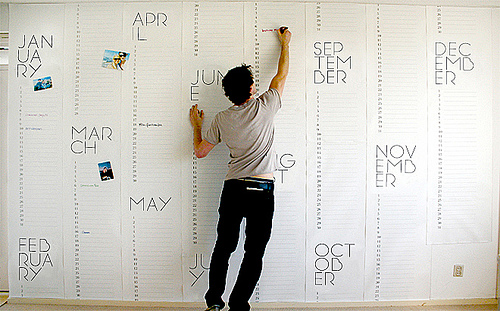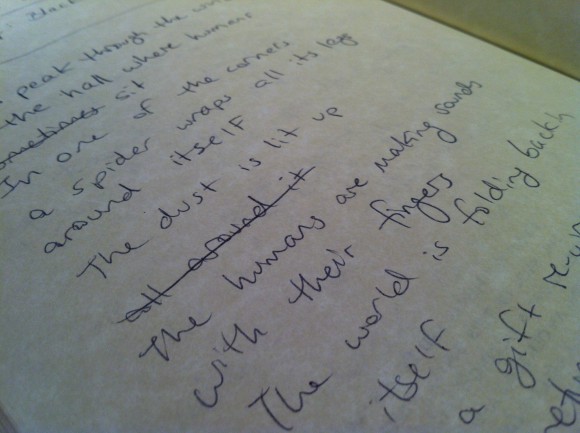I recently began working with an author who is in the process of writing what I can already tell will be an incredible book of non-fiction. Projects like this one are my dream jobs. As an editor, I often get a mix of work from many sources, running the gamut from computer science textbooks to academic books of philosophy and religion. Much of this work comes from editorial firms and publishers. I also work with independent authors, some of whom are writing dissertations, memoirs, or poetry manuscripts. The most fun and exciting work definitely comes from independent authors, because I get to help them figure out what they are trying to say and how best to say it. I love this process because it gets my own creative juices flowing, and it reminds me of why I love writing.
I had an “aha” moment recently while talking to the non-fiction author mentioned above. She said she needed someone to help hold her accountable to her writing goals while also being a supportive cheerleader. I was thrilled to take on this role. I immediately set to work creating an editorial calendar that maps out when each chapter would be due to me, when my comments are due back, etc., etc., until the book is completed. I happen to love creating schedules. I’d done it for a previous job, and I find it so satisfying to plug in tasks and due dates, being able to see a light at the end of a project, while breaking down all the tasks along the way into manageable goals.

And yet, I suddenly wondered, why had I never thought to create an editorial schedule for my own writing goals? Quick answer: I am not a fan of discipline when it comes to my own writing. This is interesting, because when it comes to my regular work (freelance editing) I’m obsessed with meeting deadlines and organizing all my projects on a clear timeline. Because my own writing isn’t something I get paid for it’s been easy for me to make excuses not to prioritize it and fold it into my “regular” work schedule.
The other area of resistance has to do with my writing process. As a writer who primarily writes poetry (though I dabble in essays), I’m confounded by the notion that I “must” write every day. Certainly many poets do write every day, and I know that I’m not supposed to wait around for inspiration, but … I still have a visceral reaction to the advice that one must write every day. I love learning about the writing routines of others. And I’m totally freaked out by the Tchaikovsky quote: “A writer who waits for ideal conditions under which to work will die without putting a word on paper.”

Because I’m that writer. I do wait for the ideal conditions under which to work. Sometimes those ideal conditions are as simple as the weather. If it’s too humid, forget it. Today was too humid. My husband and I considered going for a run on the Schuykill River, our new Sunday morning routine, and the minute I opened the front door and the wet sock of humidity hit me in the face, I quickly retreated to our air conditioned apartment. The same goes for writing. If I’m physically uncomfortable I won’t write. If I’m unsure where to begin, I won’t write. If I hate everything I’ve written recently, I won’t write. If I can come up with anything else to do––cleaning, cooking, lesson planning, paid work, editing my literary journal, etc.––I’ll do that first. The excuses are endless.
But I’m realizing now that perhaps what I’ve needed all along is to treat myself like I would treat any other client. Why not create an editorial calendar for my own writing goals? As I continue working on my new poetry manuscript, I can create manageable goals that involve research, writing, and revising, and actually hold myself accountable to those goals! What a shocker!
So, dear reader, what say you? Do you use an editorial calendar/schedule to keep your own writing on track? Have any you’d like to recommend?
One response to “Taking on a New Client: Myself”
[…] my last post I talked about taking myself on as a client, trying to schedule my own writing time while working as a busy freelance editor––which is […]